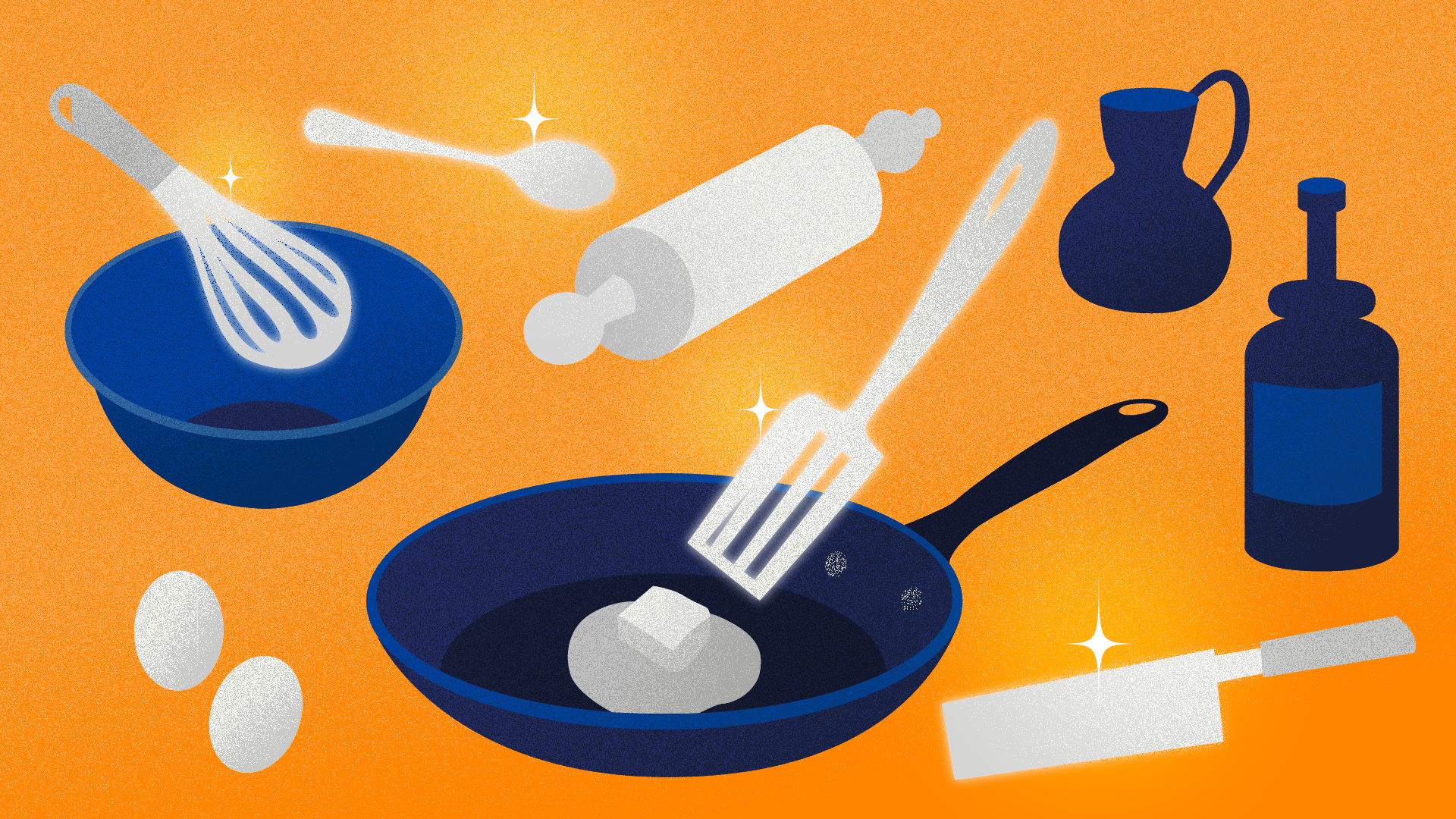
As we approach the cool and tumultuous weather of fall, many of us are tempted with thoughts of stews and soups. And not just stretching our budgets, perhaps too, these thoughts inspire planning some fun potlucks or dinner parties for the upcoming holiday season.
In any case, the YouTube algorithm has my (and your) back because I have taken on the task of watching every slightly grainy, still-in-black-and-white episode of Julia Child’s “The French Chef” that exists on the platform. Not only do I have some insight into what will make a recipe tasty, but, surprisingly, I also have a few insights into life because Julia knew no one is just cooking to eat. A good meal is so much more.
Julia Child is the perfect chef for a moment filled with imperfections. She’s full steam ahead on being curious, failing, and succeeding. Maybe this has something to do with having been a spy for British intelligence, or the love she had for post-war Paris.
Or maybe this approach started after she released “Mastering the Art of French Cooking” in America — during a time when nobody was mastering any French cooking anywhere outside of France — and she parlayed the book’s success into being one of the first cooking shows on American television in the 1960s. Even her regular appearances on PBS, a network with millions of viewers, could have positively impacted the way she looked at life. Julia wanted you to succeed and live her best life and so do I.
Life Tip No. 1: What complements you can make you stronger.
Did you know when you cook with butter, you should also add some oil so your butter fares better against the heat and burning?
Julia knew this. She had a huge knowledge of French cooking techniques thanks to the chef courses she took at Le Cordon Bleu. And she was one of the first women to study here. And you certainly need a good technique like butter and oil together in a time before cooking spray. However, it’s not enough butter and oil to make a recipe fatty by any stretch. It’s just enough to make sure things from eggs to steak to veggies in a saute pan don’t stick to the bottom of the pan.
Applying this way of thinking to life: life is better when you live it with those who complement you. Think of yourself as a big knob of butter floating in a sizzling hot pan. Who is your oil and how do they keep you from burning under the pressure of life’s heat?
Life Tip No. 2: Preparation is key to multitasking (and to everything else).
Julia was a big believer that any home cook can make a professional-looking meal as long as you practice with your tools. Julia wanted home cooks to be faster and more proficient with their knife skills. After all, if you get through the hard “dog work” (as she calls it) of the kitchen, you can more easily get on to the fun and satisfying parts of cooking.
Along with demonstrating different techniques, Julia wanted a cook to have no fear of a sharp knife so they could quickly peel and segment an orange in their hand which is a skill necessary to make a dish she was quite enthusiastic about called: Duck a ‘lOrange (an orange roasted duck).
Julia Child can be remembered for saying: “and if you’ve practiced your knife skills, this will be easy!” And honestly? She’s not wrong.
One can practice any skill: Maybe you need to get in the practice of visiting fellow artists or learning how you’re inspired or reading more about a new or unfamiliar type of art from the Flaxman Library. Practice is what you make of it and it is about what is most useful to you.
Life Tip No. 3: There are a ton of gadgets (and possibilities) out in the world!
My favorite television personality and culinary nerd Alton Brown detests one-use items and has complained about them on his show “Good Eats.” But even Alton might have to admit how cool some of Julia’s European gadgets were when they only had one job.
Julia loved to show off what different kinds of cooking gadgets were capable of doing. My personal favorite is the pot with a handle that detaches and can be reattached so it can go in the oven with ease. It’s wild.
Understanding one’s own kitchen is something Julia Child had to do, — given the fact that her tall height meant her kitchens had to be custom built both in her home and on her television set — and something I think she might have also promoted to other home cooks.
The life question (maybe lesson) here is learning how you account for what makes you unique in your life and your art practice. Are you prepared for whatever your art practice might throw at you next or any cool gadgets that could make your life easier?
Life Tip No. 4: Sorrow and nervousness in adversity doesn’t make you weak.
One of the most interesting things that sets Julia Child’s work apart from other TV chefs is the way she fumbles from time to time. She loses her words, her glasses, and sometimes her cooking pots despite knowing her kitchen so well. She has forgotten the meat in a dish after showing you how to chop it earlier making her appear more authentically human as she taught cooking. Julia Child was more than a perfect personality mimicking a recipe.
Julia’s authenticity is something we can all strive for. She was nervous, she was imperfect, she was a little sad when things didn’t work out but that never stopped her. She was a cooking shark, bent on swimming through the waters and I know I want that kind of strength present in how I approach my own art practice.
Life Tip No. 5: Embrace what you love.
This might sound like a redundant idea if you’re reading this while currently in art school, but this isn’t just about where you are in life or what new thing you’re learning about in class.
Julia’s passion for cooking and eating French food moved mountains and not just for the audience. It wasn’t just that she introduced a whole bunch of people to boeuf bourguignon (fancy French meat stew) or that she got them to advocate for fresher options in their markets. She also lived her life passionately for food. “The French Chef” show debuted near the middle of her life’s legacy, even though it was just her start in most of America’s homes.
By seeking and embracing something that brought her joy, she changed the lives of so many. Along with her own.
So, take a moment to think about your art practice. It’s not just about the hard work of making art it’s also about asking ourselves: What do you have special expertise in or a passion for? What joy that you want to show off to all? What is your “cooking?” French food to your Julia Child?
Life Tip No. 6: Any dessert can be improved with dark rum.
“And it has to be dark rum because otherwise you might as well not put it in at all.” — Julia Child, “The French Chef,” Season 5







